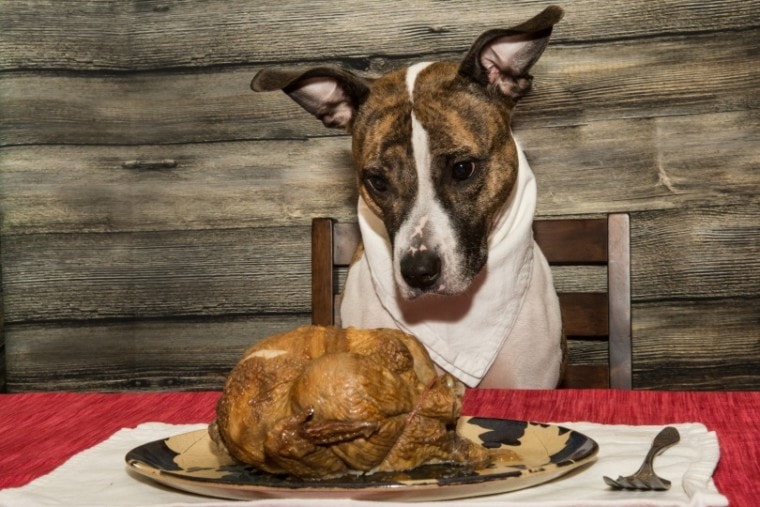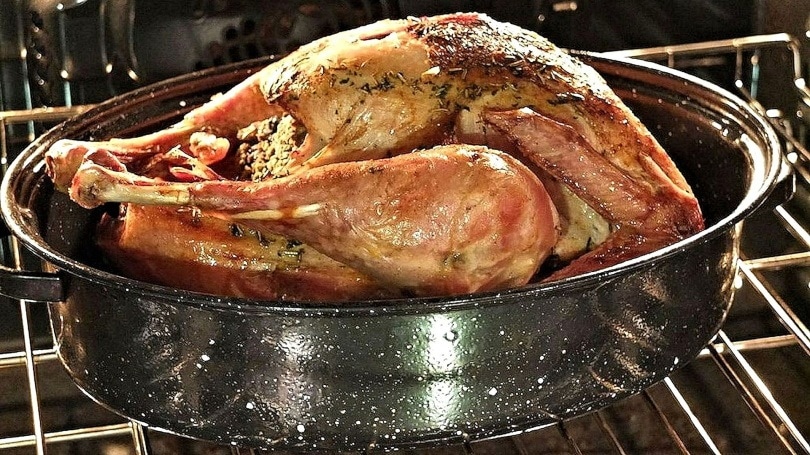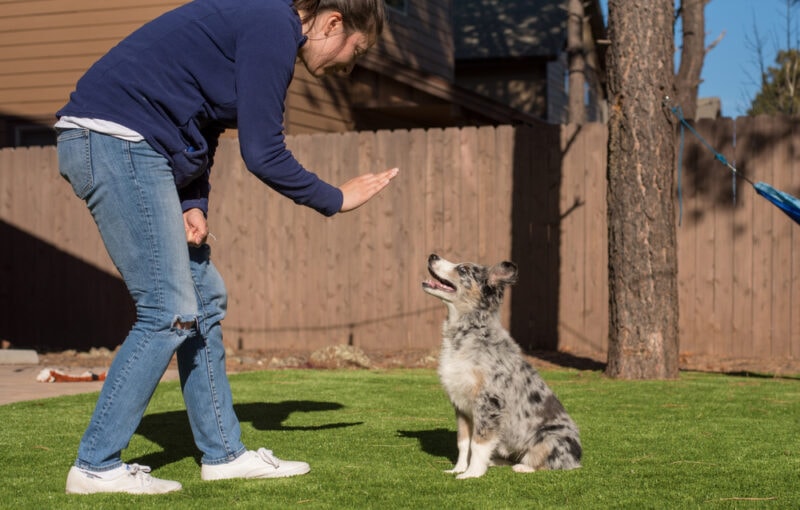
It’s Thanksgiving, and everyone is gathered in your home for the holiday feast with all the trimmings. Afterward, you look at all the leftovers and wonder if you can share a bit with your best friend. The short answer is that turkey can be safe for your dog if served the right way, but it’s probably safest to pass on it if you’ve prepared it with ingredients that are problematic for your pet.
Turkey is not always off-limits for your dog. It’s just that you need to know a few things up front before you carve a helping for your dog. You might be able to give it to your pup, but only after you consider a few facts.
Nutritional Value of Turkey
Many people eat turkey as a low-fat alternative to chicken or beef. A 100-gram serving of white turkey meat contains 50% less fat than the same amount of white chicken meat. Turkey is also an excellent source of protein that even exceeds the recommended daily allowance for adult dogs.
Turkey has no carbs or sugar. It’s a rich source of magnesium, potassium, and other vital nutrients. All this information makes a strong case for giving your dog this food. But we are talking about plain turkey breast that doesn’t have any fancy rubs, condiments, or sauces. It also doesn’t have any skin.
Note that a 100-gram serving of ground turkey contains over 10 grams of fat. That pushes it close to the recommended 13.8 grams of fat for dogs, according to the nutrient profile of the Association of American Feed Control Officials.
Feeding your pet a high-fat diet is a major risk factor for obesity and pancreatitis. Even one meal is enough to trigger an acute bout of this serious health condition. Symptoms include:
- Lethargy
- Nausea
- Vomiting
- Dehydration
- Abdominal pain
Pancreatitis can become chronic if your pet has repeated episodes. While most animals recover, some do not, making it a potentially life-threatening condition if left untreated.
The Dark Side of Turkey

Other ingredients may accompany a turkey dish. Onion and garlic are high on the list of red flags. They can cause similar symptoms as pancreatitis, with just as many health risks. The takeaway message is that you should only give your pet plain white meat without the skin.
Another health risk exists with salmonella. These bacteria can affect humans and their pets, causing a variety of symptoms. Undercooked turkey or leftovers kept too long at room temperature are possible sources of this bacterial condition. It is a zoonotic disease, which means your dog can transmit it to you and other members of your household.
That’s one reason that we strongly urge you to pick up your pet’s canned food after 30 minutes. The longer it sits at the danger zone of 40℉–140℉, the greater your chances of contracting salmonella. Of course, feeding your dog raw feed is equally unsafe. CDC and the American Veterinary Medical Association advise pet owners against giving their pet these foods.
Food Allergies and Intolerance
We also have to address factors that can affect the safety of any food that you offer your dog. We’ll say up front that your pet is more likely to have an allergy to something airborne, such as dust, than for them to have a food allergy. Some breeds are more likely to have food allergies, though, including Labrador Retrievers and West Highland Terriers.
Common allergens include:
- Beef
- Chicken
- Wheat
- Pork
- Corn
- Soy
When your dog eats a trigger food, their body responds with an inappropriate immune response. Symptoms typically include:
- Itching
- Hair loss
- Excessive licking
- Ear infections
- Anaphylactic shock in severe cases
Turkey isn’t on this list because it’s not the same thing as having a chicken allergy. Reactions occur to specific compounds. While the two species seem similar, they are quite different. However, allergies sometimes happen even if a pet has eaten the same food for a long time. Exposure is the basis for developing them.
Food Intolerances

A possible adverse reaction to turkey involves a food intolerance to the meat. This means that a certain foodstuff doesn’t agree with your dog. The symptoms typically involve GI symptoms. Comparable human illnesses include celiac disease. Allergy symptoms often happen abruptly. Intolerance signs may come after your dog has started digesting their meal.
Final Thoughts
Turkey is an alternative to other meats and is highly nutritious without the excess fat that you may find in other foods. The essential thing is to only give your dog skinless and boneless white meat that you’ve prepared simply. Poaching or baking are excellent methods that won’t add to its fat content.
That said, we suggest that you think carefully about whether you want to give this food to your pup. It can interfere with your pet getting all the other nutrients that they need.
Related Reads:
Featured Image Credit: Jay Ondreicka, Shutterstock











